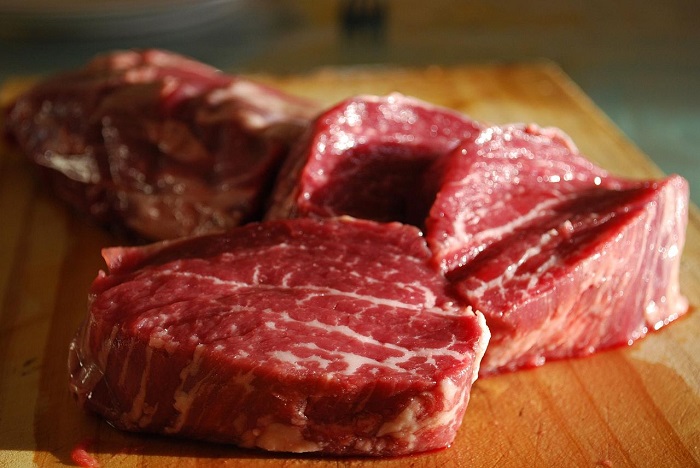Ways to Survive Off-Grid Without Refrigeration

Prior to 1923, home refrigeration units were science fiction. We did have ways to cool things, but it was a labor-intensive process. Some examples of how we would cool our food down for storage include icehouses and packing the items in snow. With what we know now about food safety and refrigeration, it almost seems like a must. So, how are you meant to survive off-grid without a refrigerator? I, Matthew Davies, am going to provide you with a few ways that you can keep your food safe without the use of a traditional refrigerator.
There may be several reasons that you happened upon this blog post. The first possible reason is that you are possibly considering pulling the plug and becoming someone that is living off the land. Another reason could be that you are planning for the future. As we all know, the amenities we enjoy in our lives are just that, amenities. That means they may not always be available for us to use. I don’t identify as a doomsday prepper, but I do want to rely on myself to keep my family safe and secure. Knowing what to do in case we are forced to live without our luxuries is what drives me to know more about living off the grid. Below, you will find several ways to keep your food safe for consumption lest you lose access to a refrigeration unit.
Ice
Whether you make it at home or run to your local gas station, ice can be placed in a cooler to keep your food fresh longer. Also, depending on the state you live in, you can use winter to your advantage. There are many ways to preserve the ice formed in winter for use later on. While the summer months may prove to deplete your ice supply, there are ways you can make ice at home. I am not going to go into detail in this particular blog, but perhaps in the future, I will share a couple of ways that you can make ice while living off-grid.
Heat
It may seem counter-intuitive that you could use heat to keep food from spoiling, but there are ways to preserve food using heat. Applying heat to your meal will keep the bacteria from forming and allow you to eat the food the next day. You can do this for up to 24 hours without putting yourself at risk.
To preserve food using heat, all you need to do is set your food on simmer and leave it on your electric stove or wooden cook stove. Again, do not exceed 24 hours; it just isn’t safe after that. Should you find yourself unable to consume the food in the 24-hour period, give it to your farm animals who have a higher tolerance for bacteria than we do.
Shopping
If you don’t have leftover food, then you don’t need to store it, so limit shopping trips or stop shopping at them all together. Rather than depend on a store to purchase food, try raising your own. This can be as simple as having a few chickens, a couple of cows, a goat or two, and even some crops. Anything you can do to avoid going to the store is a positive here. Now, I am not saying we are going to wage war on supermarkets; they are great when you are in a pinch and need something fast. However, you will find that when you farm raise your food, you will be much happier. Not only is it fresher, but you know exactly what it contains.
Requirements
In North America, we tend to put things in the refrigerator that doesn’t need to go there. A lot, not all, of condiments, do not require refrigeration. Yes, even once opened, they are entirely safe being stored at room temperature. Make sure to read the label. If it doesn’t say you have to refrigerate it after opening, then you will be fine.
Another thing that is over refrigerated is fruits and vegetables. While refrigeration will make them last longer, it is not absolutely required. Merely storing them in a cool, dry place will prevent them from taking on mold and ruining your crop. Make sure you keep them separate so that if one does get moldy, it will not contaminate the remainder of the food.
Spring House
Spring houses are buildings that you construct right over a place where a spring emerges from the ground. Since the water comes from deep underground, it is generally cooler than the water on the surface. That water flows over the food or other items you wish to keep cool. Combine this with proper insulation of the spring house, and you will find you never need to have a refrigerator again. I am not lucky enough to have a spring on my property, but should one ever emerge, I am building a spring house immediately. I won’t even mind having to go outside to acquire my “refrigerated” items.
Zeer Pot
Zeer pots have been around for a long time, though many of us in North America have never heard of them. To make a Zeer pot, place two clay pots together, fill the space between them with sand, and add a little bit of water. Place the Zeer pot in a location where there is at least a small breeze. Recent studies have shown that food stored this way can preserve food up to 20 times longer than not using them. It is essential to note this may not be ideal for meats or other heat-sensitive foods.
Conclusion
Those are just a few of the ways that I, Matthew Davies, suggest you deal without refrigeration if you are living off the grid. I hope you have found these suggestions helpful and will use them if you decide to make the switch from living on the grid.